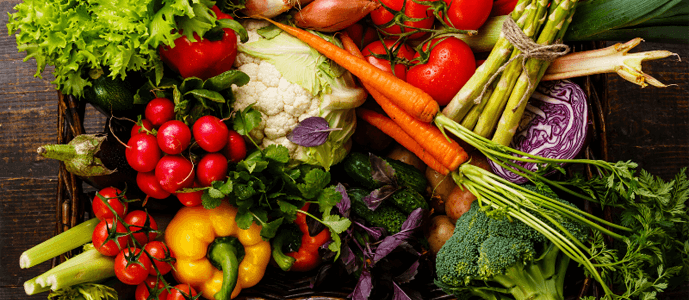
Ukraine imported “borscht set” vegetables, in particular potatoes, carrots, beets, cabbage and onions, worth $100.253 million in January-June 2023.
According to statistics released by the State Customs Service (SCS) on Monday, Ukraine imported 12.476 thousand tons of potatoes worth $8.641 million in the first six months of 2023.
At the same time, 27.29% of the market share of imported potatoes in the first half of this year belonged to Greece, which was able to earn $2.23 million from its sales. Potato shipments from Romania accounted for 12.66% worth $1.034 million, and from Azerbaijan – 9.67% and $970 thousand, respectively.
Ukraine had to import the entire “borscht set” during the most deficient in terms of vegetables in the first half of 2023. In particular, purchases of onions on foreign markets reached 0.16% of the country’s total imports, cabbage – 0.09%, carrots and beets – 0.06%. In total, market operators spent $93.882 mln to purchase these basic vegetables in the diet of Ukrainians (excluding potatoes).
The top three leading suppliers of “borscht set” vegetables in the group were importers from Poland and the Netherlands. They accounted for 43.5% and 31.6% of Ukraine’s onion imports, which amounted to $12.393 mln and $8.949 mln, respectively. The leading onion supplier was China with 8.3% of supplies worth $2.346 mln.
The leader in cabbage supplies to Ukraine was Poland, whose share in supplies amounted to 32% and brought $9.147 million to the neighboring country. Macedonia ranked second with 31.6%, for which it earned $9.034 million, while the Netherlands ranked third with 10.8% and $3.093 million, respectively.
Poland also turned out to be one of the leading suppliers of root vegetables – carrots, beets and celery – in the first half of 2023. The share of imports of these vegetables in the domestic market reached 46.9%, which in monetary terms amounted to $11.072 million. The best in supplies of these vegetables were the Netherlands and Turkey, whose supplies occupied 37.7% and 2.9% of the import share, which in monetary terms amounted to $8.899 million and $683 thousand, respectively.
The most demanded vegetables in winter-spring time in Ukraine are tomatoes and cucumbers. Import of tomatoes in the first half of 2023 amounted to 0.29% of all imports into the country, cucumbers – 0.07%, which amounted to 73.05 thousand tons and 28.182 thousand tons respectively.
The leader in supplying these vegetables to Ukraine was Turkey, which accounted for 77.4% of all imports of tomatoes and 46.8% of cucumbers in January-June 2023, which amounted to $45.5 million and $12.87 million, respectively.
The top three suppliers of tomatoes to Ukraine were Poland, which accounted for 20.37% of supplies worth $12.989 mln, and the Netherlands with 2.99% of supplies worth $1.9 mln.
In addition to Turkey, Ukraine bought cucumbers in the first half of 2023 from Romania, which fulfilled 35.33% of supplies worth $9.714 million, and Poland with 11.3% for $3.106 million, respectively.
Despite the shortage of vegetables in the country, Ukrainian agricultural producers managed to send small batches of them for export.
Ukrainian potatoes are forbidden to be supplied to the European market due to legislation not adapted to European requirements. Ukraine did not lose its traditional markets and managed to earn $11.251 million on the export of 19.854 thousand tons of potatoes, of which 50.7% went to Bulgaria, 39.7% to Azerbaijan, 9.05% to Moldova.
Cabbage exports from Ukraine amounted to 871 tons, of which 98% went to Bulgaria. Deliveries of onions, carrots and beets to foreign markets were practically not performed in the first half of 2023.
The sale of 781 tons of cucumbers on foreign markets brought Ukraine $1.905 million. The traditional buyer of greenhouse cucumbers is Poland, where in the first half of 2023 was made 96% of all exports of this vegetable, and the Baltic States, in particular, in Lithuania went 3% of Ukraine’s exported cucumbers.
Ukrainian farmers earned $463 thousand on export of 120 tons of greenhouse tomatoes, 86.5% of which were bought by Poland and 12.4% by Estonia.